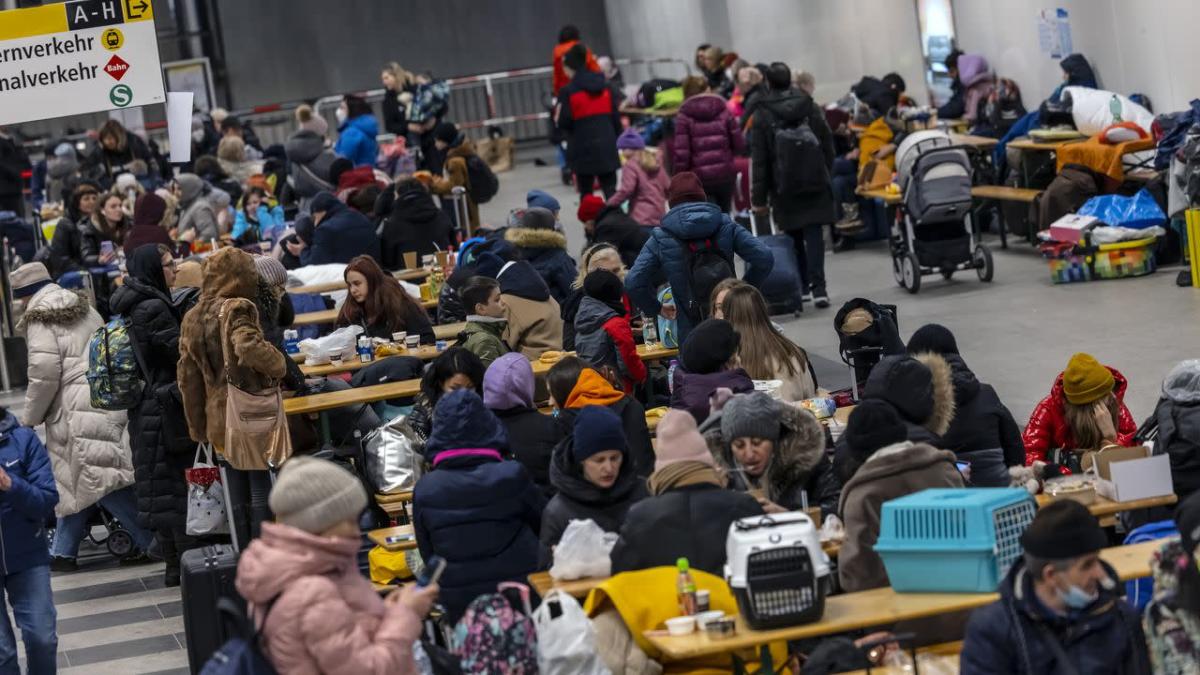
The grassroots efforts across Europe to help and house Ukrainians arriving in unfamiliar countries have helped thousands find refuge, but could also be a human trafficker’s “dream,” refugee advocates are warning.
The big picture: Almost 3 million people — mostly women and children — have fled Ukraine since Russia invaded on Feb. 24, according to the U.N. refugee agency. The vast majority have sought refuge in Poland, which has taken in more than 1.7 million refugees in the last 19 days.
Stay on top of the latest market trends and economic insights with Axios Markets. Subscribe for free
On the ground: Daphne Panayotatos of Refugees International visited several border crossings into Poland last week, where hundreds of traumatized Ukrainians were greeted with free SIM cards, blankets, meals, and offers of rides. Hopefully, most people are well-intentioned, she told Axios, but added:
-
“Someone’s holding a cardboard sign that says ‘I can take three people to Berlin’ and who knows? It’s really creating a huge risk and without proper structures in place to register people, we could see some really negative consequences of this.”
-
World Vision Romania’s Andreea Bugor notes that Romania, where over 400,000 Ukrainians have arrived, was already known as a hub of human trafficking. The priority when the war began was to provide emergency aid as quickly as possible, but now “we have to think about these things, too,” Bugor says.
Driving the news: Today, the City of Berlin began warning Ukrainian refugees arriving by train to be careful of offers of money or accommodation, over concern they could be trafficked or forced into prostitution.
-
Germany’s interior ministry says more than 300,000 private homes have been offered as shelter for refugees. But the German government is now asking people to register their homes with the government, rather than approaching people individually.
-
Polish authorities on Thursday detained a 49-year-old man for allegedly raping a 19-year-old Ukrainian woman.
Aid groups are particularly concerned about the risks for children who were unaccompanied or separated from families, a danger highlighted by UNICEF and UNHCR last week.
-
An estimated 100,000 children live in orphanages and institutions in Ukraine, according to a Monday release by Save the Children.
-
“These children are some of the most vulnerable in Ukraine and face a heightened risk of trafficking, abuse, and other forms of exploitation,” Save the Children’s Eastern Europe director Irina Saghoyan said in a statement.
What to watch: A coordinated, regional response is key, Panayotatos said, because if one neighboring country has weaker controls traffickers will simply go there.
Zoom out: A 2020 report from the European Commission said its “conservative estimate” is that human traffickers made 29.4 billion euros annually.
More from Axios: Sign up to get the latest market trends with Axios Markets. Subscribe for free




